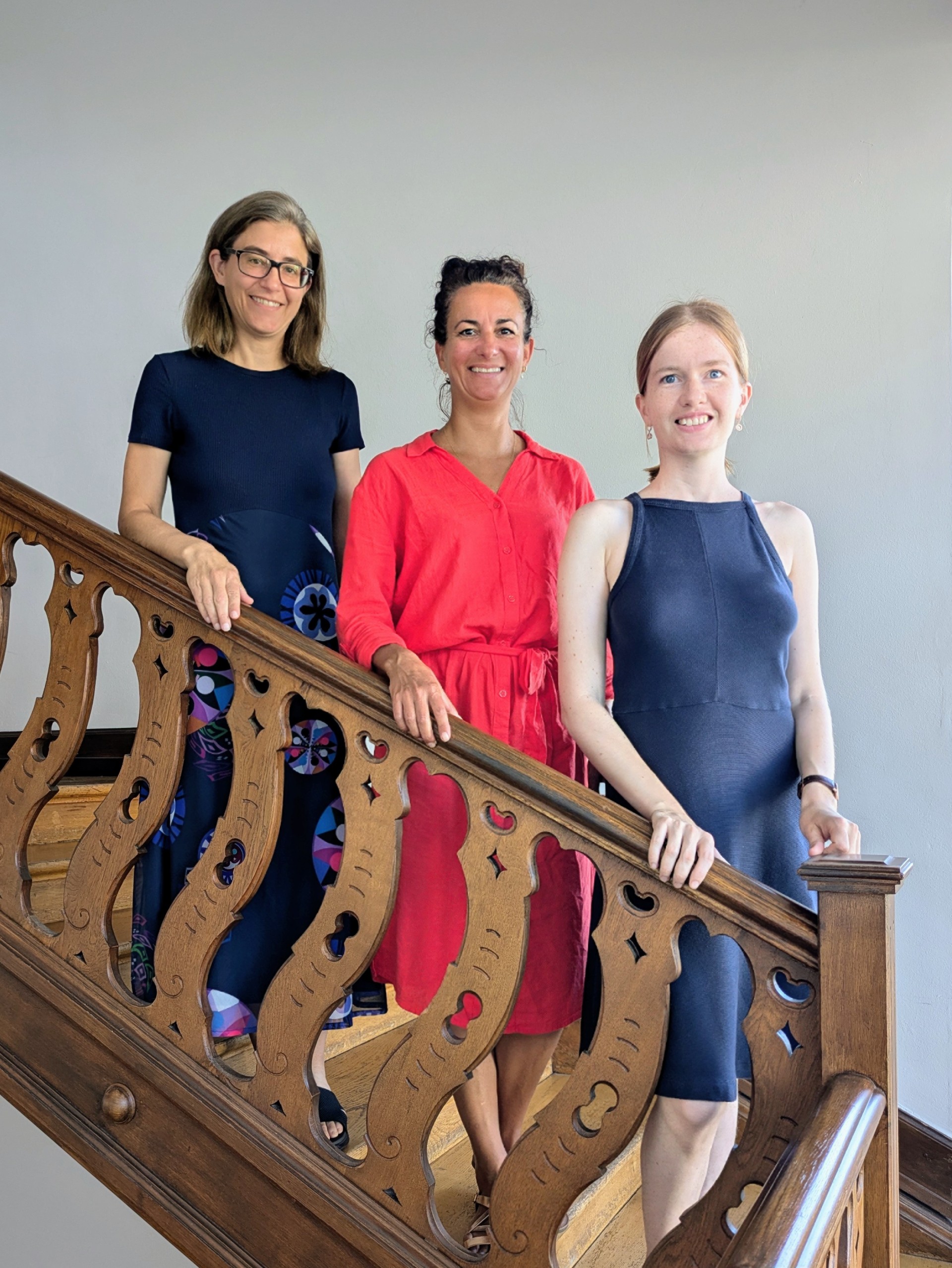Navigation auf uzh.ch
Navigation auf uzh.ch
Developmental delay and learning disorders can significantly impact the development and well-being of affected children and their social environment. There is a great need for more research on learning disorders and on how to address them in school and everyday life. AdaBD members Silvia Brem and Karin Kucian - who lead research on language development and numerical cognition respectively - have joined forces and found a platform for research and outreach on learning and learning disorders.
The URPP AdaBD runs this platform and is happy to welcome Leonie Holste as its coordinator! Since starting in May 2024, she designed a website for the platform with lots of interesting material on learning disorders. Further, she interviewed Silvia Brem and Karin Kucian on their research and their motivation behind this exciting project.

Karin: Through our research, we are constantly reminded of its practical relevance and soon developed a desire to bridge the gap between research and practice and between learning disorders. My work is focused on neural and behavioral characteristics of numerical cognition in children with and without developmental dyscalculia, a specific learning disorder affecting numerical understanding and mathematics. I also study the negative effects of low math skills and math anxiety on overall health and well-being.
Silvia: My research focuses on understanding how neuronal networks develop in healthy children and adolescents and in those with neurodevelopmental and psychiatric disorders. A significant part of the work in my team is dedicated to studying the process of learning to read. We conduct this research with both children who have typical reading development and those who experience reading difficulties. In practice, however, challenges in reading are rarely isolated; they often co-occur alongside other developmental or psychological issues, which is why it is so important that they are also studied together.
Karin: Indeed, children often have combined difficulties in math and reading and face additional challenges on top of that. They may be confronted with comorbidities such as ADHD, leading to persistent difficulties. There is a great need to harmonize research and to investigate these developmental disorders in a coordinated manner instead of focusing on single aspects. This is why we wanted to combine our expertise and have been exploring avenues for realizing a joint project. With AdaBD, we now have the opportunity to create this platform and optimize our goals of connecting research and practice. The naming of the platform "Learning and Learning Disorders" shows that not only dyscalculia and reading disorders are being addressed in our project, but a broad range of disorder patterns that may afflict learning are being considered.
Silvia: Interdisciplinary cooperation is crucial in this field. The challenges we address can only be fully understood and effectively tackled by integrating various disciplines, such as educational sciences, pedagogy, psychology, biology, medicine, and more. It is through this collaborative approach that our understanding of learning, learning disorders and comorbidities will truly advance.
Karin: Besides research, there is also a great need for more knowledge among those affected and other target groups such as parents and teachers.
Silvia: Unfortunately, even today, the recognized pattern of reading disorders and dyscalculia are sometimes misinterpreted or dismissed as temporary issues. To prevent this and improve the mental well-being of those affected, greater awareness and better support is indeed essential.
Karin: The platform aims to increase awareness and knowledge of learning disorders in order to best support children, families, and teachers. We aim to establish a platform in Switzerland that offers reliable, scientifically grounded information on learning disorders.
We also aim to be an advisory and teaching service on the topic of diagnostics. Institutions such as schools and therapy centers that already work on learning disorders often have a need for guidance in this area and many open questions and uncertainties.
Silvia: Another goal is to coordinate and harmonize research on learning and learning disorders, fostering collaborations with various institutions and establishing a network at national and international levels. Since the platform is embedded in the URPP AdaBD, it receives the necessary structural and financial support in the first five years of existence to advance research in this highly interdisciplinary field. New research projects will for example focus on the behavioral and neural foundations of combined math, reading, and possibly other developmental disorders. We will develop a research database of existing data and make research data available for interdisciplinary research projects. Additionally, young researchers from different disciplines will receive support in planning and conducting studies on learning and learning disorders. Through public relations efforts, ongoing studies and their results will be made more visible to various stakeholders, including the general public. This approach ensures that meaningful research findings more effectively integrated into everyday practice.
Karin: We are currently still at the beginning of the project and will begin by providing educational materials for different target groups. Moving forward, we also plan to provide training opportunities.
Silvia: A crucial goal is to de-stigmatize learning disorders and acknowledge that many people are affected. Learning disorders accompany a person throughout their life, and early detection and support for affected children can help them reach their full potential and prevent further behavioral and emotional problems. With appropriate support and intervention, effective management of learning disorders is possible.
Karin: In this sense, it is essential to increase awareness and knowledge about learning disorders. I feel that many prejudices and stigmatization arise from a lack of knowledge and persistence. I would love to see more emphasis on teaching learning disorders in teacher training programs, as they have a direct impact and are often the first point of contact for families. But even after a diagnosis, support must be improved with more therapy options and trained professionals to assist affected children.